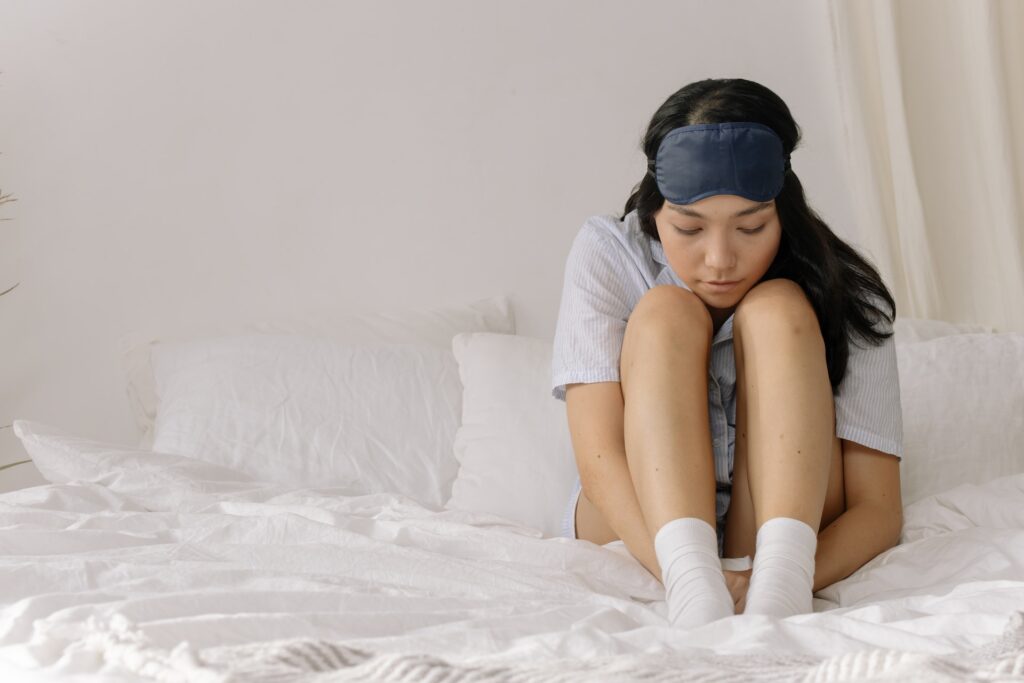Poor sleep can be caused by a myriad of reasons. When my patients tell me that they have trouble sleeping, I often suggest a few things to help them sleep better.
Good sleep habits (hygiene) are often not practiced by people who have trouble sleeping. They have learned bad habits along the way which, like a vicious cycle, cause them to have more trouble sleeping at night. Bad habits include drinking alcohol at night in order to fall asleep, watching TV or surfing the Internet if they can’t sleep, or becoming anxious about going to sleep which causes the brain to not be able to shut down. If one changes course and re-learns new healthy sleeping habits, one’s sleep usually improves. Good habits take time to solidify. Prepare yourself to do exactly what’s prescribed below and work hard at following these principles for at least 2 weeks. You will see a difference in your quality of sleep as you maintain these habits. Here are the do’s and don’ts.
Do’s
- DO go to bed at the same time and get up at the same time, even on weekends. Try not to deviate from the time for more than an hour. After a few weeks, you will feel sleepy when bedtime comes, and become awake when it’s time to wake up.
- DO allow yourself seven or eight hours of sleep nightly. If you have trouble staying awake in the daytime, then you have not had enough sleep at night.
- DO keep the place where you sleep quiet, comfortable, dark, and cool. If need be, use earplugs.
- DO use earplugs if your neighbor is noisy and you can not get them to quiet down. I like Max Lite Foam Earplugs. I use them often because my neighbor has a loud, crying baby.
- DO exercise in the daytime so your body will be tired. This principle is important if you are an anxious person. You want to work off your anxious energy in the daytime. The variation of your hormone levels will accentuate, and that will induce better sleep.
- DO only two things while in bed: sex and sleep. Do anything else while in bed, and your body will be trained to be awake when you are in bed. If you always sleep when you lie supine (flat) in bed, then your mind will be habituated to feeling sleepy when you’re in bed, no matter what the time is.
- DO give yourself an hour of winding down time before going to bed. During that one hour, habituate your mind to relax and prepare to shut down by doing mundane things such as brushing your teeth, taking a shower, meditating, reading something not too exciting, listening to soft music, etc. This principle is especially important for those whose minds can not stop racing. If you are one of them, learn various relaxation techniques and do them to relax your brain.
- DO progressive muscle relaxation exercises or meditate if you worry or are anxious at night. Progressive muscle relaxation exercises are easy to learn and can be done in 15 minutes or less. At the end of the exercise, you will feel relaxed and sleepy. Mindful meditation is also a good way to train your brain to relax and stop racing.
- DO put things down on paper if you are worried about something that needs to be done. Transfer all obligations, errands, and chores that you have from your brain to a to-do list on paper, so you no longer have to keep them in your brain. If you worry about something, also put it down on paper and tell yourself that you can worry about it tomorrow. This transfer or letting go of worry is an important skill to learn.
Don’ts
- DON’T read, watch TV, eat, or browse the Internet while lying in bed. You don’t want to habituate your mind to be active while you lie in bed. You can sit in bed and read, but don’t lie in bed and read.
- DON’T watch exciting TV or get on the Internet if you can not fall asleep. Instead, do something monotonous or boring such as data entry, balancing your checkbook, reading a boring book, or listening to slow, soft music until you feel sleepy.
- DON’T stay in bed if you can not sleep after thirty minutes of lying there. Get up and do something monotonous or boring until you feel sleepy. Then you can try to go to bed again. This is to improve your sleep efficiency, meaning that whenever you are in bed, you are to be asleep. Your brain will take the cue when it learns that whenever you’re in bed, you are to be asleep.
- DON’T do vigorous exercise late at night as your body will excrete adrenaline which will prevent you from restful sleep for a while.
- DON’T drink or eat anything with caffeine such as Coke, coffee, tea, or chocolate in the evening, or your mind may become too alert at night. This may not apply to 4% of the population who have ADHD as caffeine has a paradoxical effect on them.
- DON’T drink fluids at night if you have tendencies to go to the restroom in the middle of the night. Void your bladder before going to bed will allow you not to have to urinate until the morning.
- DON’T drink alcohol to help you sleep. When the level of alcohol falls in the middle of the night, it may wake you up.
- DON’T worry if you can not sleep at night. One night of poor sleep or no sleep will cause you to be drowsy the next day, and you will catch up on your sleep the next night. Worry will only prevent you from sleeping restfully.
- DON’T take naps if you did not sleep the night before. Taking naps mid-day will often prevent you from a sound sleep at night. If you really need to take a nap due to lack of sleep in the night, take a short 15-minute nap only.
These instructions are commonsensical. Every one of them is essential. Most people follow them without realizing it. Most people who have trouble sleeping have often deviated from these simple principles without realizing it, either.
Once again, if you have trouble sleeping, be sure to follow these habits religiously for at least two weeks. You will notice a significant improvement when you re-train your brain to sleep with these conditions.

Dr. Chang is a highly respected psychiatrist with extensive experience serving patients in the greater Los Angeles area. With a distinguished background in psychiatry, he has dedicated his career to advancing mental health care through both clinical practice and academic contributions.

